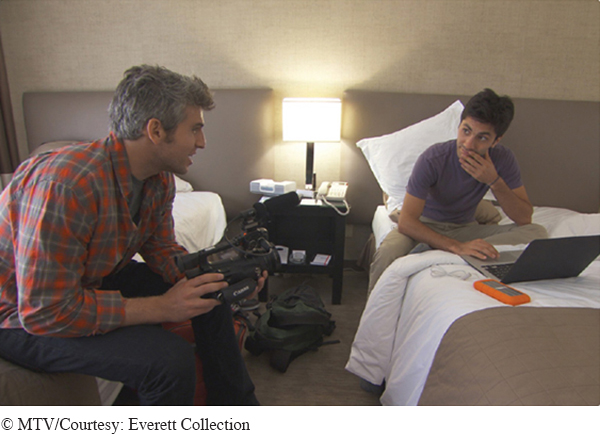3.4 Challenges of Mediated Communication
Sometimes it just happens. Without thinking, you send a sarcastic or rude message, forgetting about how it might affect the person receiving it. Although technology is convenient and useful, it also makes it easier to make poor communication choices, such as using harsh language, lying, and even harassing.
In the movie Catfish, New York photographer Nev Schulman meets Megan Faccio through Facebook. He quickly falls for her, attracted by her photos and apparent musical talent. Over eight months, they develop an online romance through messages, e-
Nev fell for a common pitfall of mediated communication: people misrepresenting who they are for personal gain or satisfaction. In fact, online deception is so common that since 2012, Nev has been the host of Catfish on MTV, a television show in which he helps people find out if their online relationships are based on reality or lies. More often than not, the relationships are based on some form of deception. (Additionally, some people believe Nev himself to be deceptive—
MTV’s show Catfish chronicles one of the most common challenges of mediated communication: people using deception to lie about their identity and intentions when forming relationships online. Have you ever interacted with someone online who turned out to be not what he or she seemed?

The harsh truth is that some people use mediated communication to lie, deceive, harass, and bully. Of course, these challenges aren’t limited to mediated messages, but certain characteristics of such communications make them especially likely to be used in this way.